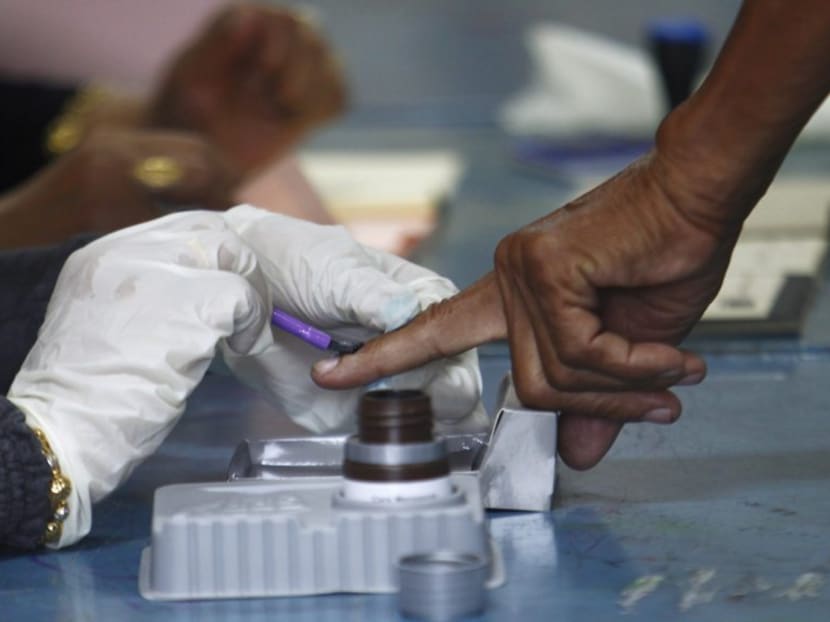Malaysians no longer vote along racial lines: PKR leader
KUALA LUMPUR — Claims that local council elections will lead to racial disunity are complete nonsense and untrue, as Malaysians no longer vote on the basis of race and religion, a Pakatan Rakyat (PKR) leader said yesterday.

A voter has his finger painted with indelible ink before casting his votes during the general elections in Permatang Pauh, 350 km north of Kuala Lumpur May 5, 2013. Photo; Reuters
KUALA LUMPUR — Claims that local council elections will lead to racial disunity are complete nonsense and untrue, as Malaysians no longer vote on the basis of race and religion, a Pakatan Rakyat (PKR) leader said yesterday.
PKR central leadership council member Latheefa Koya said those who insisted otherwise, including United Malays National Organisation (UMNO) minister Abdul Rahman Dahlan and Parti Islam Se-Malaysia (PAS) president Abdul Hadi Awang, clearly had a hidden agenda.
Ms Latheefa pointed out that the results of the past two general elections showed that Malays voted in large numbers for Chinese opposition candidates, while non-Malays voted overwhelmingly for Malay candidates, including those from PAS.
“Malaysians no longer perceive each other through the lens of race and religion. They see each other as fellow Malaysians,” Ms Latheefa said in a statement. “It is selfish and narrow politicians who perpetuate and encourage the myth that Malaysian voters continue to vote on racial lines. This is an insult to the integrity and intelligence of the Malaysian voters.”
She cautioned politicians who spread such views that Malaysian voters would not forget such an unflattering perception of them. “Selfish and narrow-minded politicians like Abdul Rahman Dahlan should be careful in implying that Malaysian voters are bigoted and nurse racial prejudice. Voters will remember this crude and untrue description of them.”
On Saturday, Mr Abdul Rahman, who is Minister of Urban Well-Being, Housing and Local Government, said local council elections would lead to racial discord as Malaysians still largely voted based on their racial background.
Mr Abdul Rahman added that local council elections would lead to higher local taxes as the elected officials would have more autonomy and would exercise their power.
He also said there were advantages to having local government councillors be appointed by the state government, rather than elected directly by the people.
One was the state government’s ability to replace ineffective officers immediately and another was the “seamless administration” of both the state and local government, he said.
Mr Abdul Rahman was commenting on the ongoing spat between Mr Abdul Hadi and the Democratic Action Party over the latter’s insistence on restoring local council polls.
Mr Abdul Hadi on Friday had raised the spectre of the May 13 riots in defending the Islamist party’s position against local council elections.
He said such polls could cause a deeper racial divide and tension, especially in Chinese-majority areas, besides being advantageous to urban residents only, whom he said were mainly non-Malays.
“Local elections are an integral part of any proper democracy and UMNO must not be allowed to sabotage the democratisation of our nation by raising the racial bogey again,” said Ms Latheefa yesterday.
She urged the party to stop its “hypocritical pretence” of being champions of the Malays, claiming that widespread poverty among Malays was caused by UMNO’s policies.






